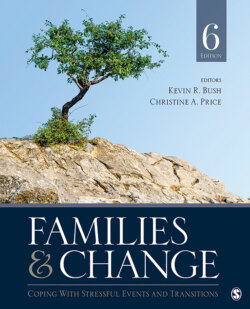Читать книгу Families & Change - Группа авторов - Страница 49
На сайте Литреса книга снята с продажи.
Mindfulness-Based Stress Reduction (MBSR)
ОглавлениеThe contemporary secular mindfulness movement harkens back to the late 1970s. MBSR (Kabat-Zinn, 2011) emerged at that time and is the most empirically supported mindfulness program to date and serves as a model for multiple other mindfulness-based interventions (MBIs) and programs including mindfulness-based cognitive therapy (Segal, 2002). Jon Kabat-Zinn utilized various mindfulness practices recruiting hospital patients considered to be non-responding or who would “fall through the cracks” of a health-care or “disease care” setting (Kabat-Zinn, 2011). During the MBSR 8-week program folks are guided in formal practices (e.g., sitting meditation, walking, body scan, gentle mindful movement) weekly with experiential exercises about the impact of stress on the body and mind, and opportunities to express practice experiences. Participants are given materials to practice formally on their own between weeks (home practice) and practice informally as they interact in the world.
The MBSR program is helpful with nonclinical and clinical health challenges (Grossman, Niemann, Schmidt & Wallach, 2004). It improves mental health (Fjorback, Arendt, Ørnbøl, Fink, & Walach, 2011), showing moderate effectiveness with depression, anxiety, distress, and stress (Khoury, Sharma, Rush, & Fournier, 2015), and when adapted, MBSR improves psychological functioning among youth vulnerable to community trauma (Sibinga, Webb, Ghazarian, & Ellen, 2016), with particular improvements in interpersonal relationships, physical health, school achievement, and hostility (Sibinga, Kerrigan, Steward, Johnson, Magyari, & Ellen, 2011). Health-care professionals participating in MBSR see increased quality of life and reduced stress (Shapiro, Astin, Bishop, & Cordova, 2005). Increasing the amount of mindfulness practice time in MBSR leads to significantly more positive intervention outcomes (Parsons, Crane, Parsons, Fjorback, & Kuyken, 2017). Lloyd, White, Eames, and Crane (2018) make a call for more research attention to “home practice” as this is a large component of MBSR with limited research connecting it to outcomes. We also wonder how home practice impacts families, particularly as it relates to well-being and stress management.
MBSR and DBT were designed to address physical pain and emotional suffering. Dialectical cognitive therapy (DBT) is a skill-based program originally designed for people experiencing suicidal ideation, parasuicidal behavior, relationship difficulties, and symptoms often related to borderline personality disorder (BPD; Linehan, 1993, 2020). Clients categorized as BPD are often doubly stigmatized both socially due to mental health stigma and medically by helpers or clinicians who, while often well meaning, are frustrated with or do not want to work with BPD clients.
